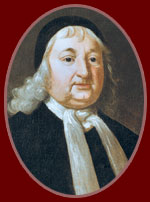As Duke Lacrosse case has unfolded over the past few months, one of the issues raised is whether and to what extent Duke professors and administrators should involve themselves in an ongoing criminal investigation. Blogs such as KC Johnson’s “Durham in Wonderland” and Bill Anderson’s posts on LewRockwell.com have raised outraged and angry voices criticizing Duke’s faculty and administrators for their intervention – or lack thereof – in the ongoing case. These criticisms raise a number of interesting points, sometimes quite persuasively. From their full-voiced howl over Dr. Houston Baker, Jr.’s open letter to the administration, to their lambasting of President Richard Brodhead over any one of a seemingly limitless number of perceived missteps, these critics have taken issue at the way in which the University has interacted with the media, the Durham community, the student body, and the alumni following the March 16th party on Buchanan Blvd.
What each of these criticisms implicitly debate is the role of the university within its surrounding community. The so-called “town-gown” relationship that was the object of so much scrutiny in the months immediately after the party is one aspect of this, but it extends to larger concerns over what role the administration has to play in students’ non-academic lives, how the administration and the faculty interact with one another, and how Duke represents itself to the greater Durham community – to name just a few of the complicated relationships. Bloggers have been right to focus on these reactions as productive of many of the tensions demonstrated in the Lacrosse case, and have further been sensitive to these concerns as the case has played out in the mainstream media and on the internet.
There is also a larger issue at play in this controversy, and one that has been the focus of much of my interest in the case: the changing role of the public intellectual in American culture. Since the beginning, observers have taken academics to task for their positions on the controversy, and academics themselves have been critical of their colleague’s various positions. Underlying this criticisms are implicit questions about the role of the public intellectual in American culture and the position of the academy within society. Further questions have been raised about the role or the humanities and the value of a liberal arts education, questions that dovetail with those regarding the public intellectual.
These are not new questions, nor ones that are particularly surprising given the context. However, the are worth considering at some length, as a society’s positioning of its intellectual class has deep repercussions for how it interacts in the world and how it is able to reflect on its place therein. There is no simple or necessary correct way for this relationship to unfold, but attention to its details and its historical context allows for an understanding of our current situation in a way that I hope will allow us to think our way through this current conundrum in a productive way.
What I hope to do with my posts on the Duke Lacrosse controversy is to investigate how these events reflect upon the role of the public intellectual in the United States. While interest in specifics, I hope to remain focused on the interplay of the academy and society and think about ways to make the relationship more productive and mutually beneficial. I welcome any and all comments on my efforts, and while many posts may spiral off onto other subjects (I do not intend to try to maintain a tight reign on all involved individuals), this is my generating subject and my primary concern here.
Subscribe to:
Post Comments (Atom)


No comments:
Post a Comment